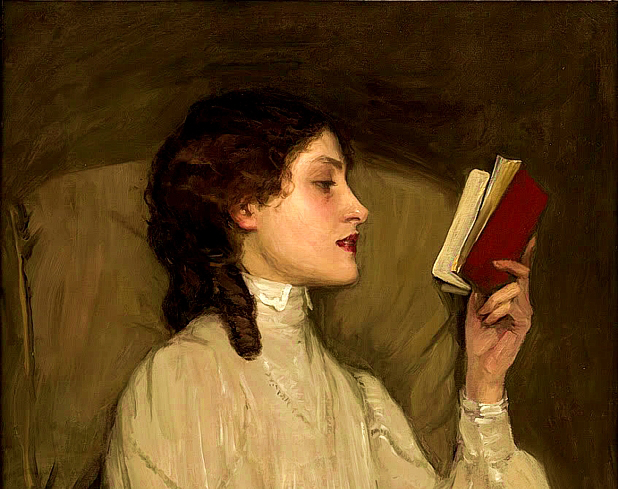We recently blogged about an article by Tim Parks wherein he suggests that we don’t need stories. Parks admits that the idea that stories help us “to shape a trajectory for ourselves in the increasingly fragmented and ill-defined social world we move in” seems viable, but he dissents, claiming that there is no way around the truth that “stories compete for our assent and seek to seduce us toward the author’s point of view.” In other words, Parks thinks that stories can’t serve as a transcendent guide to how we should live because stories are really just biases in competition.
Arnold Bennett would disagree. Bennett’s craft book Literary Taste: How to Form It was first published in 1909. Lately, I’ve been listening to the free audiobooks offered by LibriVox (which is a great nonprofit that I highly recommend), and stumbled upon Bennett’s insightful perspective on the purpose of literature. Bennett believes that in order to truly read, we must apply what we’ve learned from books to our everyday lives, an act that is both meditative and imaginative. For Bennett, the engagement of the reader in this act should be the aim of literature, and it is in this engagement that literature takes on its most essential, and most beneficial form. Here’s an excerpt from Chapter 14 of Literary Taste, entitled “Mental Stocktaking”:
“…and literature cannot be said to have served its true purpose until it has been translated into the actual life of him who reads. It does not succeed until it becomes the vehicle of the vital. Progress is the gradual result of the unending battle between human reason and human instinct in which the former, slowly but surely, wins. The most powerful engine in this battle is literature. It is the vast reservoir of true ideas and high emotions, and life is constituted of ideas and emotions.”
Who do you think has the stronger argument, Parks or Bennett?
Be sure to check out the full audiobook of Literary Taste: How to Form It here at LibriVox.









